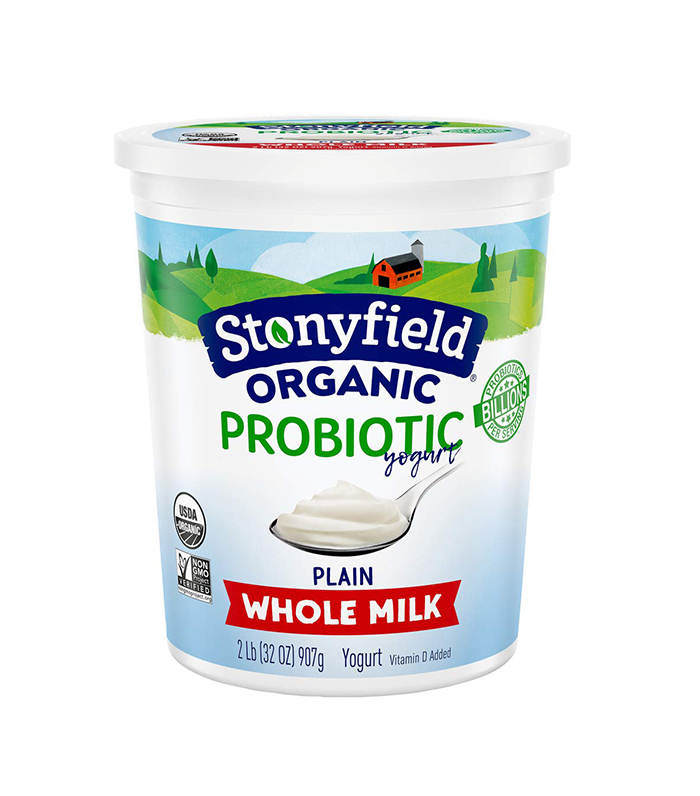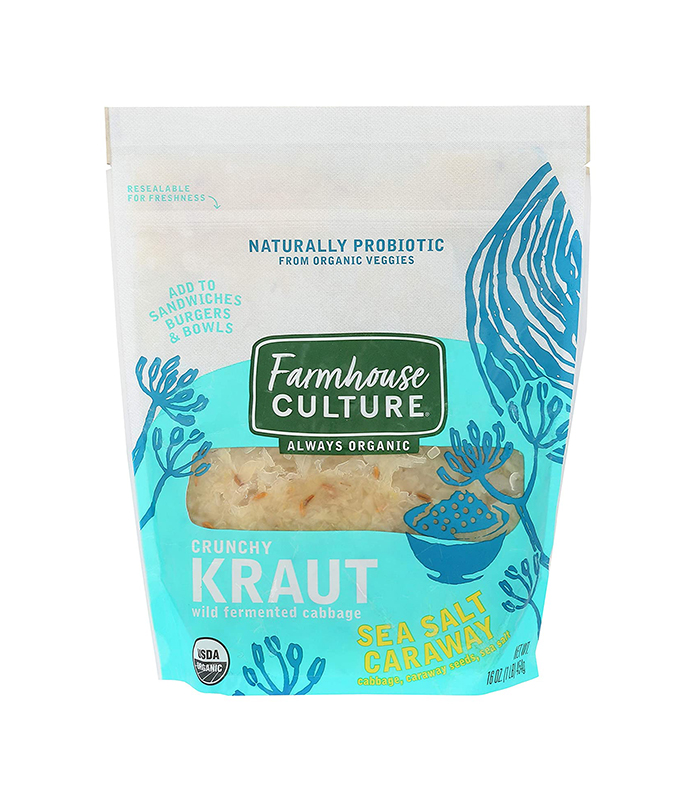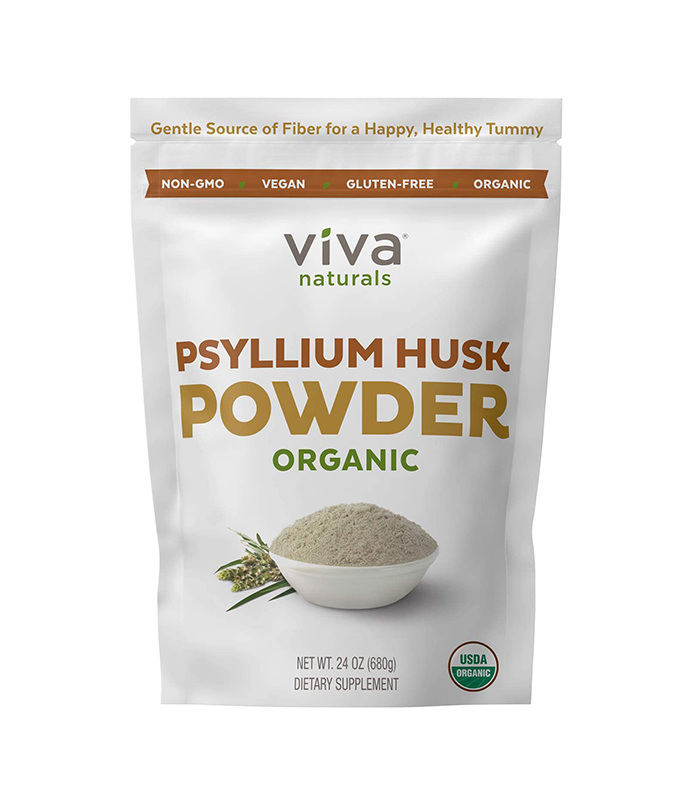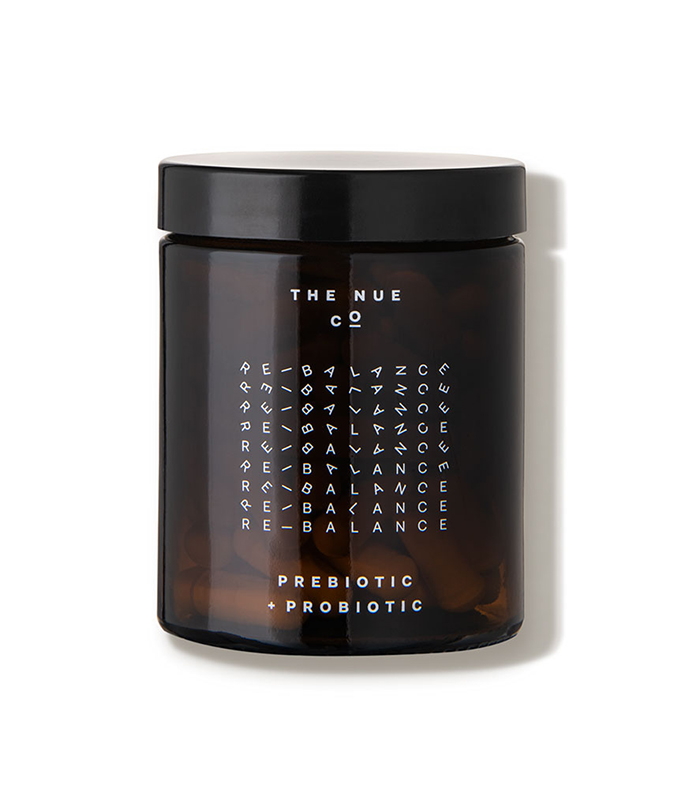The 6 Signs of Poor Gut Health and What to Do About It

Gut health has been such an important topic, especially in recent years. And while much research still needs to be done on the subject, generally, we know it's important to have a healthy gut. But when you get down to the nitty-gritty of the topic, like "good" and "bad" bacteria, prebiotics, and probiotics, it can be downright confusing, especially when you're not a gastroenterologist, scientist, or dietitian.
If you're still a bit fuzzy on gut health, we're here to help. We talked to experts to get some more insight into the subject, how you can improve your gut bacteria, and what all of this means for you in the long run. They say knowledge is power, and it's important to get the facts when it comes to your own personal health.
What Are Gut Bacteria?
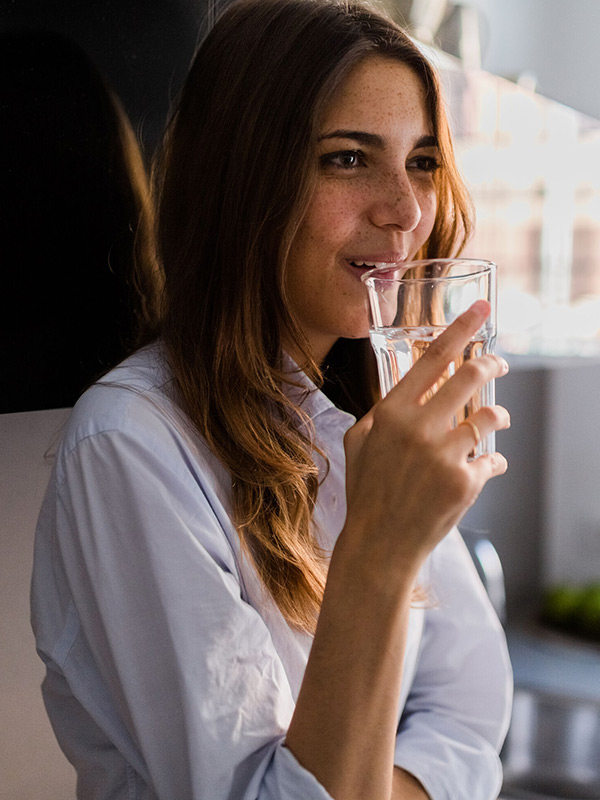
Bacteria seem scary, but they're not all bad for you. In fact, having bacteria is just a part of being human. "We have 100 trillion bacteria that live in our gut," explains Steven Gundry, MD, author, medical director at The International Heart and Lung Institute, and founder of Gundry MD. "Along with viruses, fungi, and other microbes, they constitute the microbiome, about four to five pounds in the normal person. We now know that there are beneficial bacteria and mischievous bacteria that live in a hopefully balanced ecology in your gut. In general, the good guys, what I call 'gut buddies,' should outweigh the bad guys and keep them in check."
Why Is It Important to Have a Healthy Gut?

Achieving a healthy gut is all about balancing the "good" and "bad" bacteria. Brooke Scheller, MS, CNS, DCN-C, the director of nutrition at Freshly, says research has found that when the delicate balance is disrupted, health problems can surface. And the variety of problems or issues you might come across can be very broad. That's because gut health has wide-reaching effects on the body.
"Bacteria impact our health in many ways—they help us digest food, produce helpful byproducts like short-chain fatty acids and can even synthesize certain vitamins (such as folate and vitamin B12)," explains Gregor Reid, Ph.D., chief scientist at Seed. "Additionally, the gut is connected to other systems in our bodies, which means bacteria in your gut can also impact the health of your skin, cardiovascular, lung, and liver, as well as your overall immune health." It can also affect certain aspects of your mental health.
But Reid says there is no single healthy microbiome, nor a model for it, because everyone's is unique, just like their own genomes.
What Are the Signs That Your Gut Isn't Healthy?

Since gut health can affect different systems in your body, the symptoms or conditions can vary. "Every body is physiologically unique, and the gastrointestinal system is complex. Therefore, an unhealthy gut may manifest itself differently from person to person, including anything from mild gastrointestinal symptoms to how bad your allergies are and more severe conditions due to inflammation and production of toxins," says Reid. We've outlined some signs below:

"When we have an imbalance, we oftentimes will experience irregularities in digestion ranging from irregular bowel movements, bloating, constipation, nausea, and even upward digestive symptoms like reflux," Scheller says.

You might even notice some skin problems. "Because the gut houses immune cells and important elements for detoxification, and even helps absorb nutrients, symptoms related to gut imbalance can run in many different directions," Scheller says. "Oftentimes, skin troubles like eczema, psoriasis, and acne can all be linked back to an imbalance. The skin is an external manifestation of our internal environment and therefore often is associated with the health of our gut."

"While signs of an unhealthy gut may be bloating, cramps, diarrhea, and constipation, the real signs may be hypertension, high cholesterol, diabetes, and heart disease or autoimmune diseases," Gundry says.
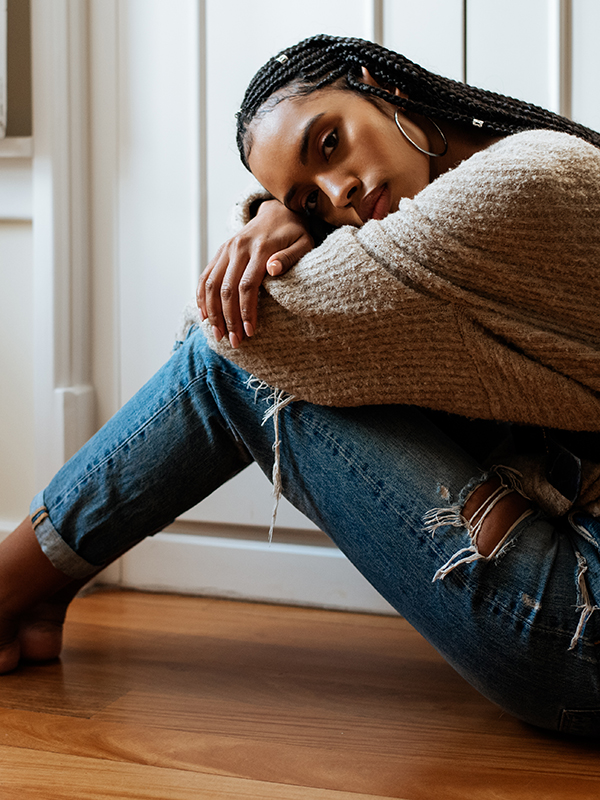
Carielle Nikkel, MS, RDN, the director of nutrition at Persona Nutrition, says disruptions in gut flora have also been linked to mental health conditions, such as depression and anxiety.

Nikkel says the lining of your gut can also be affected by poor diet, stress, or illness. "This increased intestinal permeability is linked to food allergies, obesity, inflammatory bowel disease, and fatty liver disease," she explains.

"Other symptoms include fatigue and low energy, joint pain and inflammation, reduced immune function, allergies, asthma, headaches, and much more," Scheller adds. "The gut is always a good place to start whenever you're looking to address a health concern or are looking to improve overall wellness."
Ways to Improve Your Gut Health
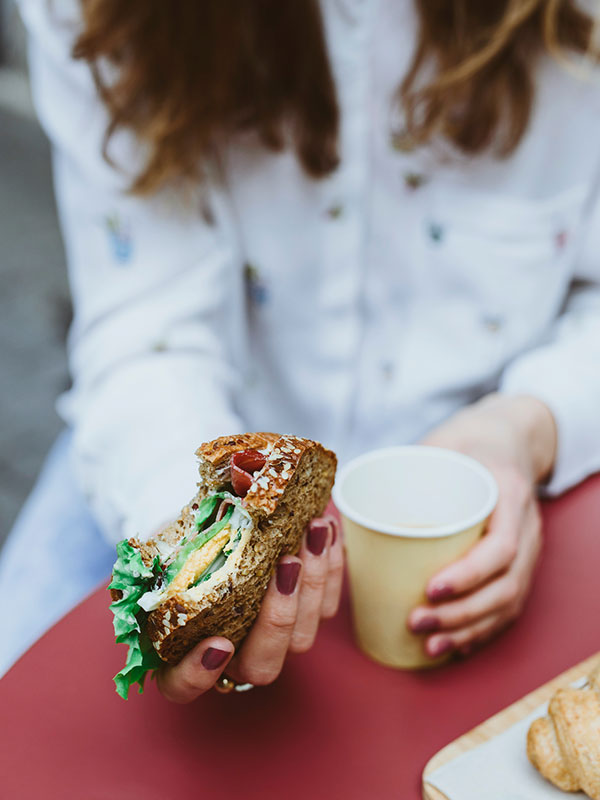
Since there are different factors that can lead to poor gut health, that also means there are many ways to improve your gut health. It depends on your own body and what your needs are. Here are a few places to start, according to the experts:
Food
To ensure a healthy gut, you can start with your diet. "Everything we consume—whether food, beverages, or otherwise—can have an impact on our gut microbiome," Scheller says. "We often think that consuming more probiotic-rich foods or taking a probiotic supplement will be sufficient to improve gut health."
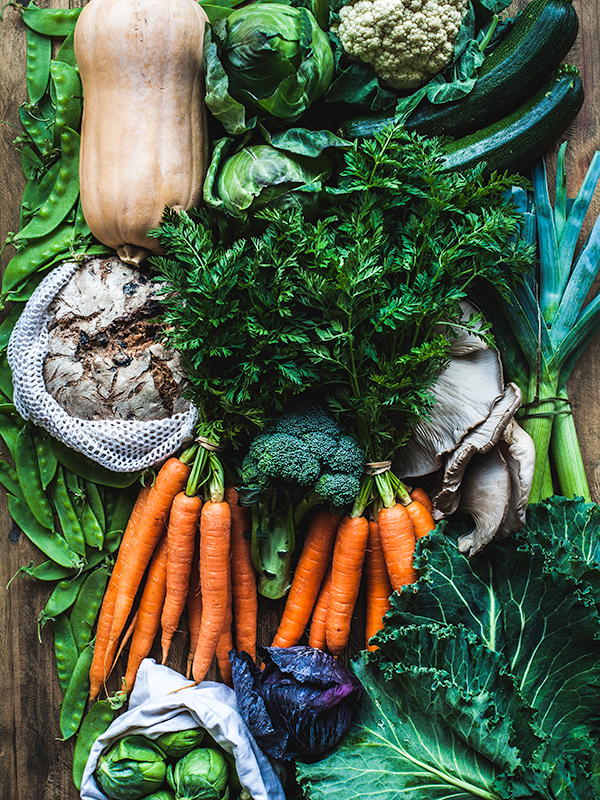
Load up on that good produce. "A follow-up to the American Gut Project, analyzing nearly 1500 data sets, found the strongest predictor of gut microbial diversity was the consumption of over 30 different fruits and vegetables in a given week," Reid says. "This indicates that a diet rich in a variety of fibers likely supports a more diverse microbial community in the gut—and that's a good thing!"
Try Probiotic-Rich Foods
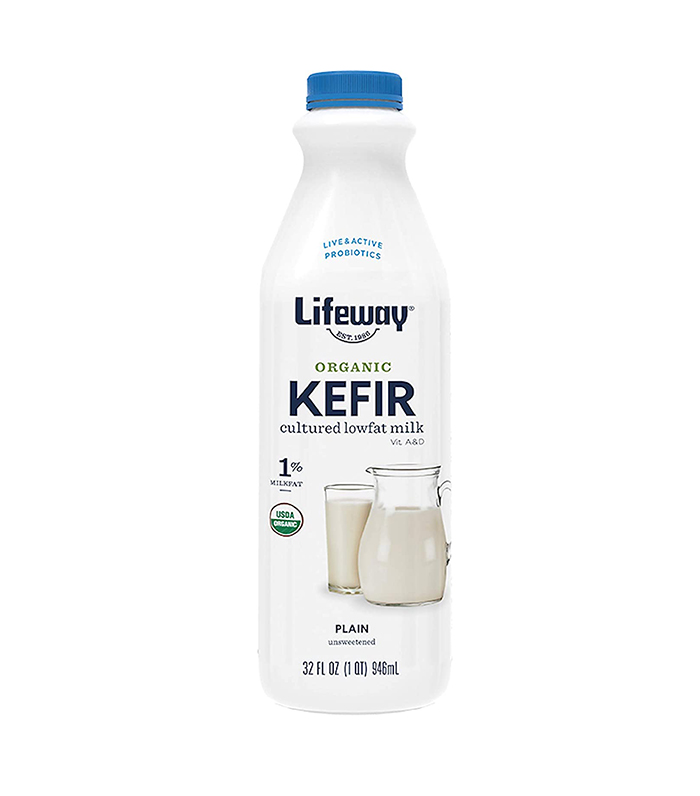
Probiotics are living microorganisms that can affect the health of the gut. Fermented foods such as yogurt, kefir, sauerkraut, and kimchi are sources of probiotics. But when purchasing these foods, be sure to pay attention to the packaging. "Food processing and storage/shelf life play a major role in the survival of probiotic organisms," Nikkel explains. "When buying yogurt, look for the 'live' or 'active culture' called out on the package. Choose unpasteurized fermented vegetables—pasteurization can kill live bacteria. Also, pickled vegetables using vinegar do not have probiotic effects. Make sure you are looking for fermented vegetables that are not made with vinegar."
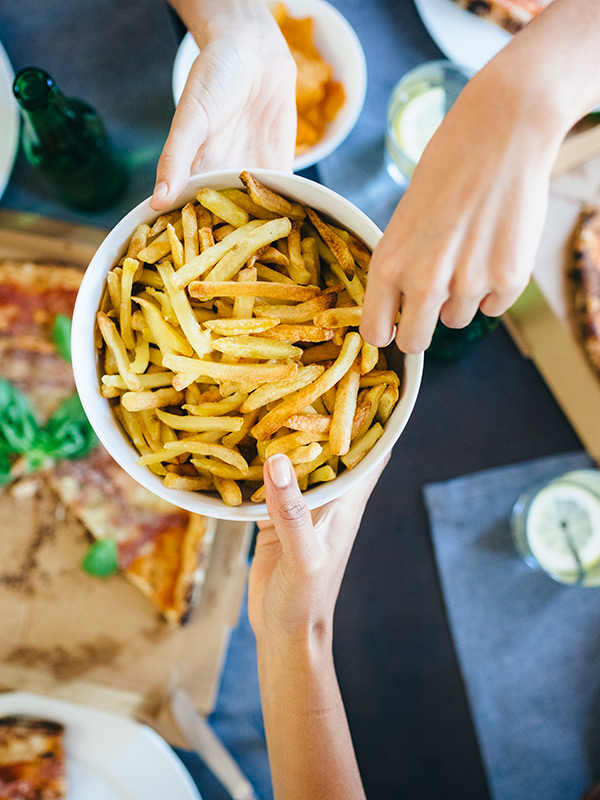
"Generally, these organisms feed off of sugar and carbohydrates, so if you are consuming a diet rich in these foods, you may have an imbalance present," Scheller says. "By starting to reduce high-sugar/high-carb foods, we can reduce the activity of certain types of bacteria and fungi that thrive in this environment. This is always a first step when looking to support gut health."

You can't have probiotics without prebiotics. "Prebiotics, the food of good gut bacteria, are what gut buddies like to eat and [need to] prosper," Gundry says. "These include cruciferous veggies, artichokes, tubers like sweet potatoes, and the chicory family of veggies. The worst foods that promote bad bugs are highly processed foods, sugars, soft drinks, and saturated fats."
Start Small
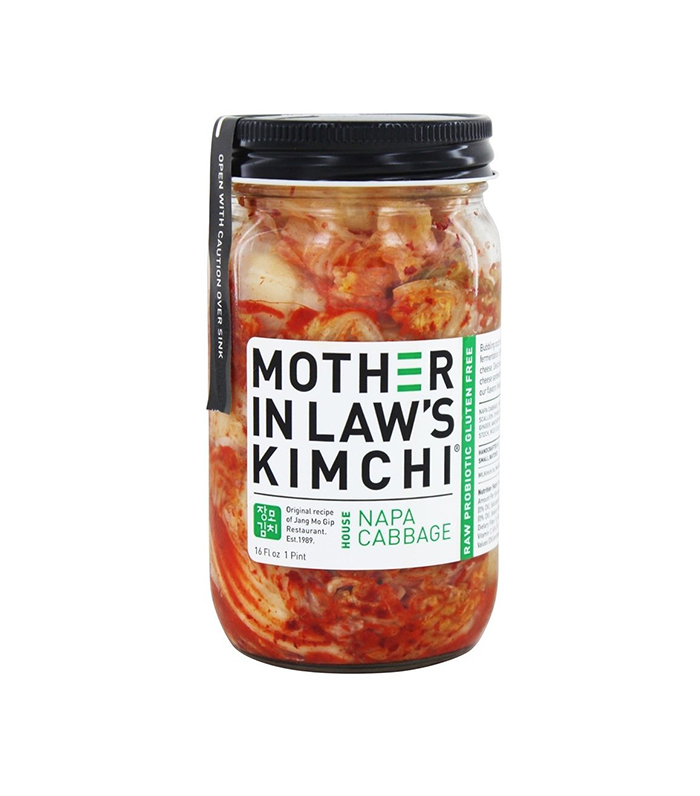
When introducing probiotic-rich foods, you don't have to go all out on the kimchi and yogurt immediately. "Generally, you want to start with small amounts of fermented foods and increase them slowly," Scheller recommends. "If you experience bloating or other digestive discomfort, this could be an indicator of an imbalance. However, it can often be helpful to try different types of fermented foods. Some may have a difficult time digesting dairy-based foods like yogurt but may feel less discomfort with sauerkraut or other fermented vegetables. When consuming these foods, pay attention to how you feel and adjust accordingly."
Supplements
Supplements can help you achieve better gut health. Just remember that it's important to consult your doctor or healthcare provider before you decide to take something new. Here are a few recommendations:
Explore Supportive Supplements
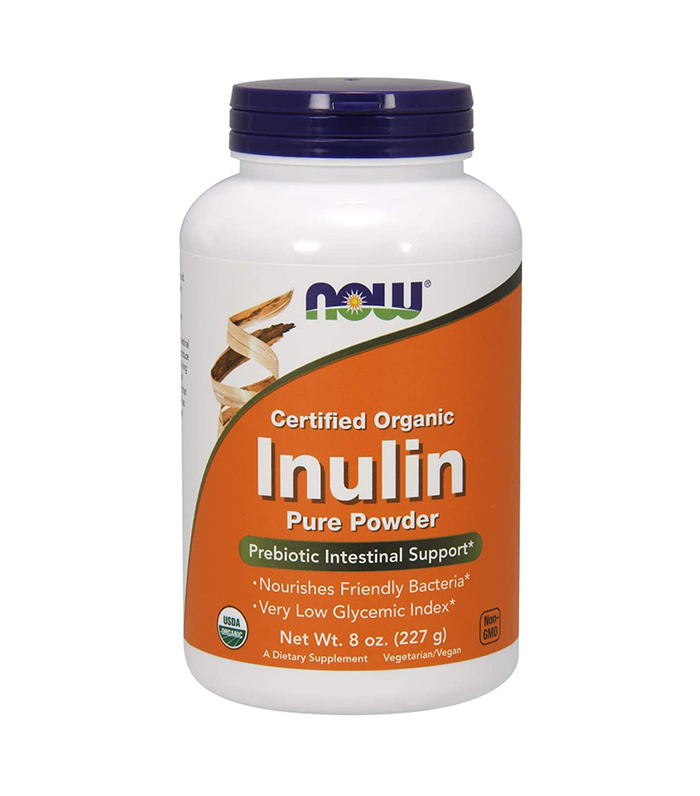
"There are good supplements that feed good bacteria such as inulin, flaxseeds, sesame seed extract, and psyllium powder," Gundry says. "I manufacture several products to promote good bugs, including PreBiothrive and ProPlant Complete Shake."
Try Probiotic Supplements
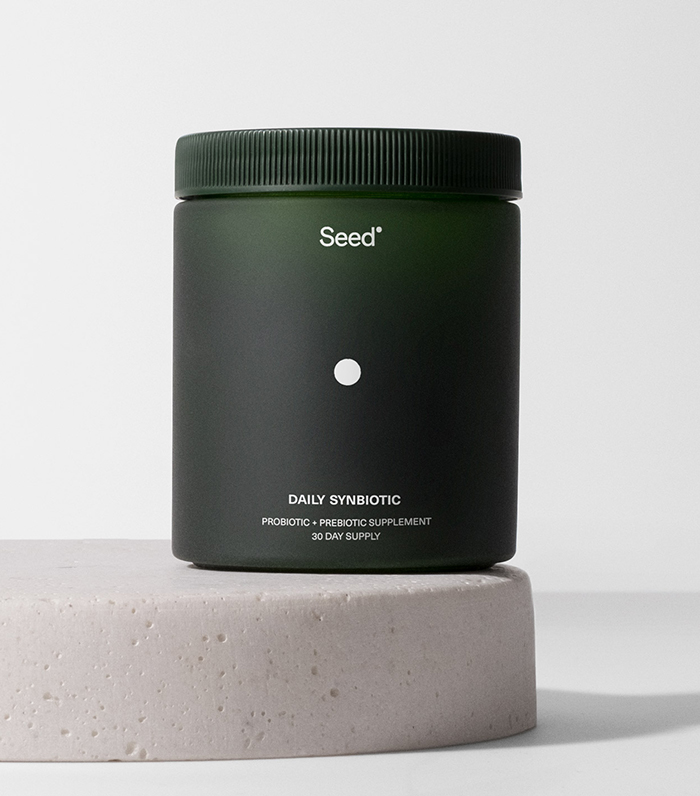
"A high-quality probiotic supplement allows you to have more control over the specific strains and doses you are consuming," Nikkel says. "They can also help you avoid the added sugars that are found in some probiotic foods sugar as kefir, yogurt, and kombucha."
Reid cautions that certain probiotic products may contain allergens or come in a form that may be difficult for certain individuals to consume. If someone is having trouble swallowing capsules, he suggests dissolving the contents in liquid if possible.
Lifestyle Habits
Your daily habits can have affect your gut health, too. The experts gave some examples of activities or things that can disrupt your microbiome.

High levels of stress can really mess up a lot of things in your body, including your gut. "Research in mouse models has shown that psychological stressors can impact the composition of the microbial ecosystem, suggesting that stress management may be a tool for modulating the microbiome," Reid says.
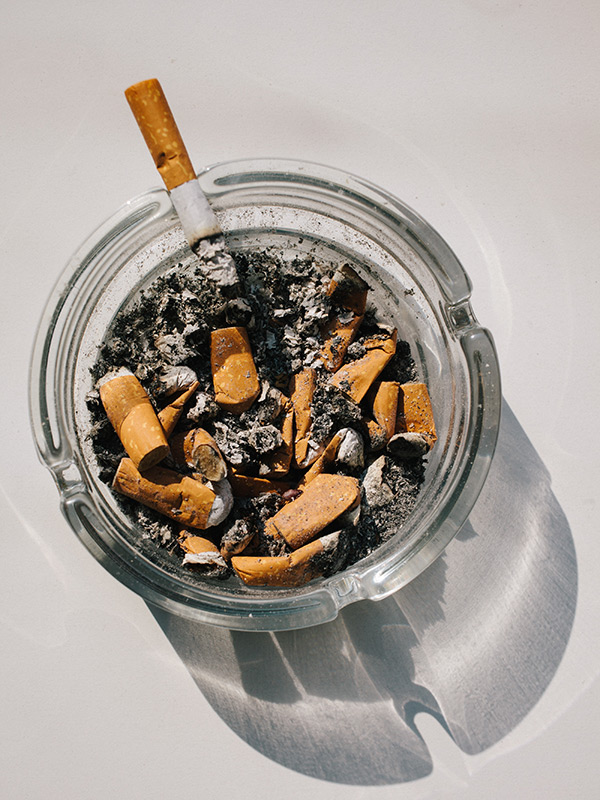
"Research also suggests that smoking can have negative impacts on microbial composition in the lungs, gut, and bladder. It's never been a good idea to put smoke into your lungs," Reid says.
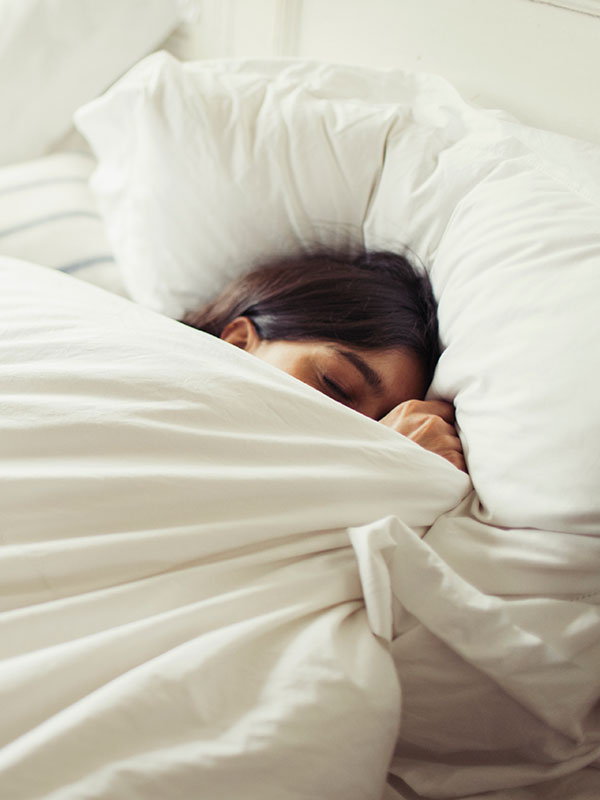
This is easier said than done, we know, but sleep is important. Reid says that sleep loss and circadian mismanagement may affect the microbiome.
Next up: The 4 Worst Things You Can Do for Gut Health, According to an Expert
This article is provided for informational purposes only and is not intended to be used in the place of advice of your physician or other medical professionals. You should always consult with your doctor or healthcare provider first with any health-related questions.
Sarah is lifestyle writer and editor with over 10 years of experience covering health and wellness, interior design, food, beauty, and tech. Born and raised in Los Angeles, she attended New York University and lived in New York for 12 years before returning to L.A. in 2019. In addition to her work atBest Knockoff Luxury Clothing , she held editor roles at Apartment Therapy, Real Simple, House Beautiful, Elle Decor, and The Bump (sister site of The Knot). She has a passion for health and wellness, but she especially loves writing about mental health. Her self-care routine consists of five things: a good workout, “me” time on the regular, an intriguing book/podcast/playlist to unwind after a long day, naps, and decorating her home.
